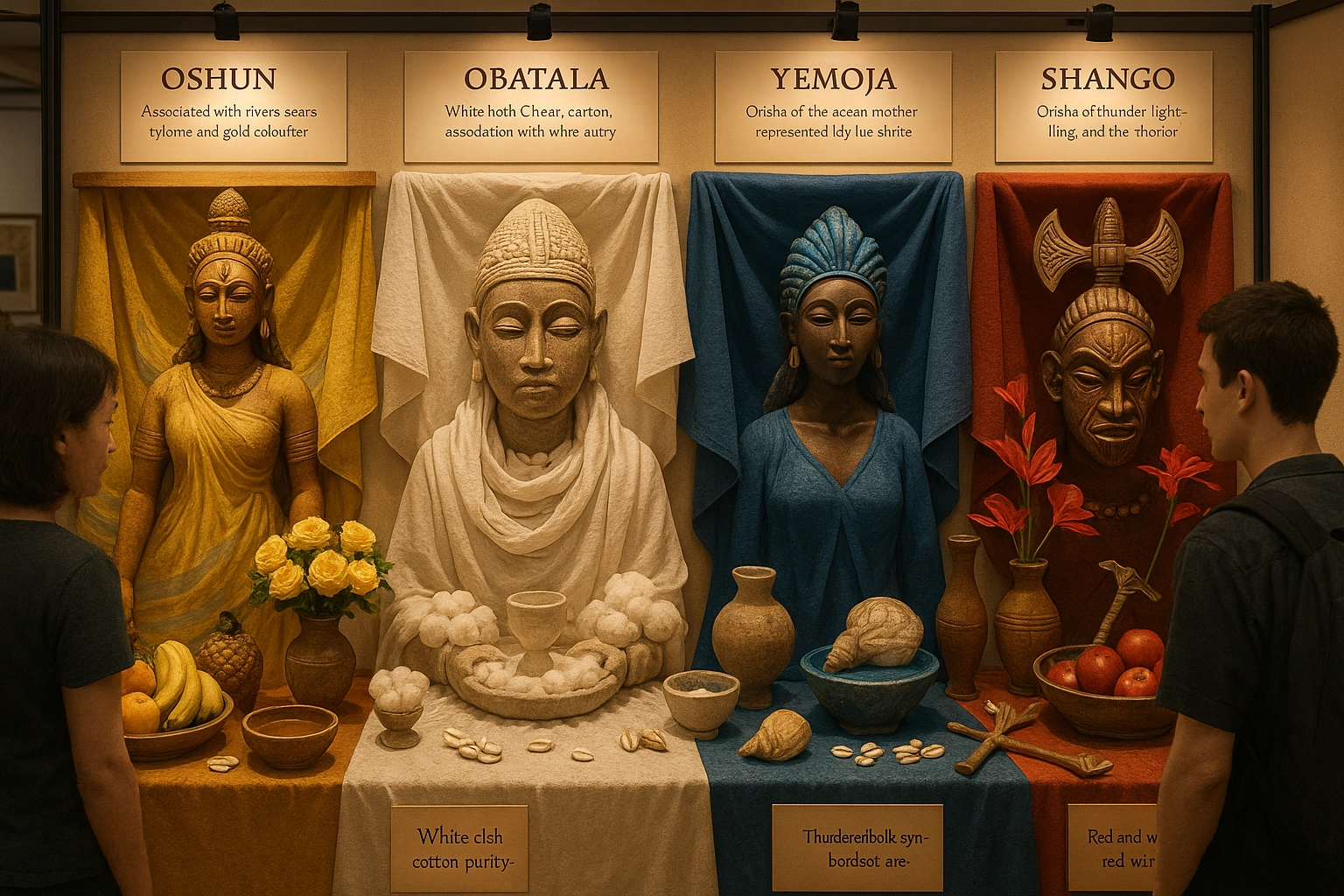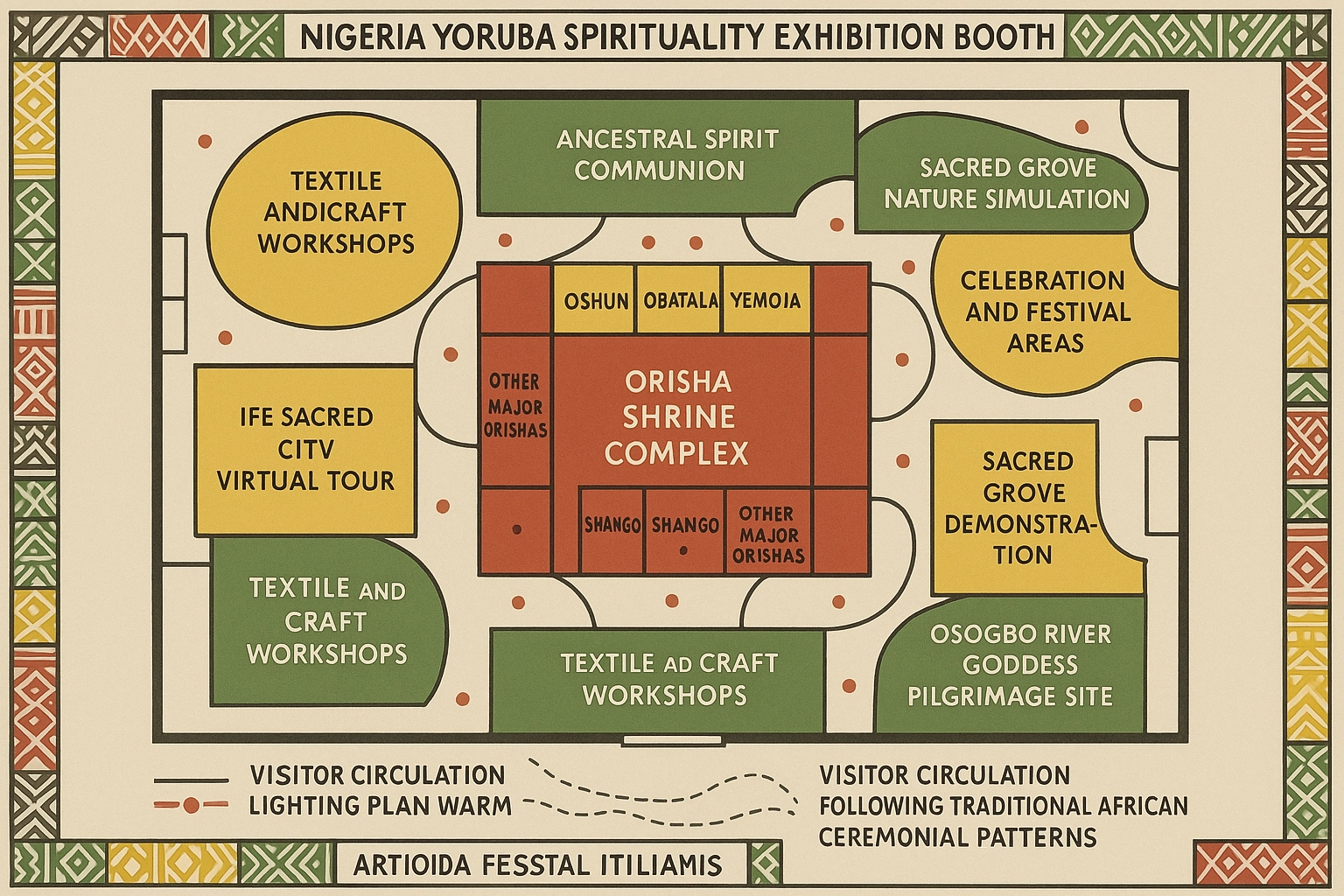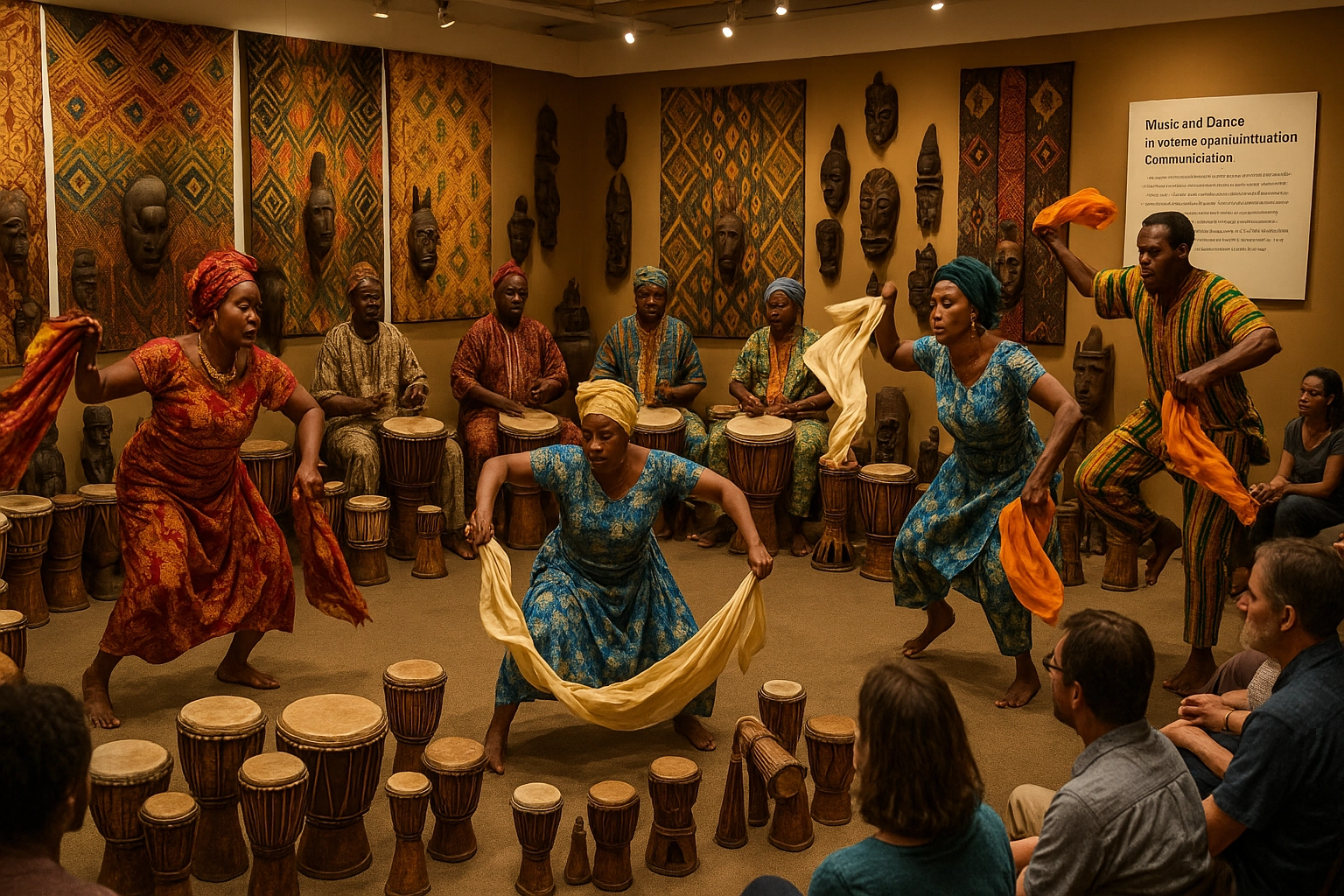Yoruba Spirituality Exhibition
Explore the profound wisdom and vibrant traditions of Yoruba spirituality through our immersive exhibition experience
Exhibition Layout & Experience

Exhibition Floor Plan
Interactive layout showing Orisha shrines, ritual performance space, and sacred grove

Main Exhibition Hall
Featuring Orisha altars, ritual artifacts, and immersive cultural displays

Sacred Ceremonial Space
Traditional ritual circle with sacred drums, cowrie shells, and ancestral symbols
Historical Origin
Yoruba spirituality is one of the oldest surviving African religious traditions, originating among the Yoruba people of present-day southwestern Nigeria, Benin, and Togo, with roots stretching back several millennia. It developed through oral tradition, sacred myths, and community rituals, centering on the worship of the Orishas and reverence for ancestors.
Emergence & Development
Yoruba religion is a sophisticated spiritual system that integrates myth, ritual, divination, music, and community ethics. The tradition flourished through sacred cities like Ile-Ife, regarded as the spiritual origin of the Yoruba people. Over centuries, the religion adapted to changing social contexts, spreading through migration, trade, and later giving rise to new expressions such as Santería, Candomblé, and Vodou in the Americas.
Key Figures & Leaders
Orishas
Divine beings serving as intermediaries; includes Oshun, Obatala, Yemoja, Shango, and Esu.
Babalawo / Iyanifa
Male and female priests specializing in Ifá divination and spiritual counseling.
Chiefs & Elders
Stewards of tradition, guardians of ritual, and transmitters of ancestral wisdom.
Core Concepts & Beliefs
Olodumare
Supreme Creator, source of all existence.
Orisha Worship
Veneration of multiple deities embodying natural forces and virtues.
Ifá Divination
Sacred system using palm nuts and Odu verses for guidance.
Ashe
Divine energy or life force that empowers all beings and rituals.
Fundamental Principles
Community & Collectivity
"I am because we are"—well-being is communal, not just individual.
Balance & Harmony
Maintaining spiritual, social, and ecological equilibrium.
Respect for Elders
Wisdom preserved through oral transmission and community ritual.
Transformation & Healing
Ritual, music, and dance as pathways to wholeness.
Sacred Symbols
Cowrie Shells
Symbol of prosperity and feminine energy, used in divination and adornment.
Sacred Drums
Bata, Dundun, Djembe used for communicating with spirits and energizing ceremonies.
Colors & Textiles
Each Orisha is associated with specific colors and patterns.
Major Rituals & Ceremonies
Orisha Festivals
Annual celebrations involving processions, music, dance, and offerings.
Ifá Divination Sessions
Spiritual consultations for personal and communal guidance.
Egungun Masquerades
Ceremonies honoring ancestral spirits with masked dances and communal rites.
Healing Rituals
Using herbs, songs, and spiritual invocations for cleansing and wholeness.
Global Influence & Cultural Impact
Global Influence
Yoruba spirituality forms the foundation of many New World religions such as Santería (Cuba), Candomblé (Brazil), and Vodou (Haiti). Its music, dance, and ritual artistry have influenced global culture.
Cultural Impact
Yoruba traditions promote social cohesion, communal responsibility, respect for elders, and integration of the sacred into daily life. Festivals, oral storytelling, and music keep history and wisdom alive.
Geographical Spread
Practiced throughout Nigeria, Benin, Togo, and across the Americas and Caribbean through the diaspora. Sacred groves, rivers, and shrines dot the Yoruba landscape with UNESCO recognition.
Important Spiritual Books & Texts
Ifá Corpus (Odu Ifá)
Vast oral literature of divinatory verses, proverbs, and wisdom teachings
Oriki
Praise poetry and sacred songs for Orishas and ancestors
Ethnographic Works
Scholarly works preserving oral tradition in written form
Associated Holy Places & Structures
Ile-Ife
Sacred city, regarded as the spiritual birthplace of humanity.
Osogbo Sacred Grove
UNESCO-listed forest, center of Oshun worship.
Traditional Shrines
Sacred rivers, ancestral altars, and village gathering spaces.
Memorable Quote
"A river that forgets its source will dry up."— Yoruba traditional wisdom